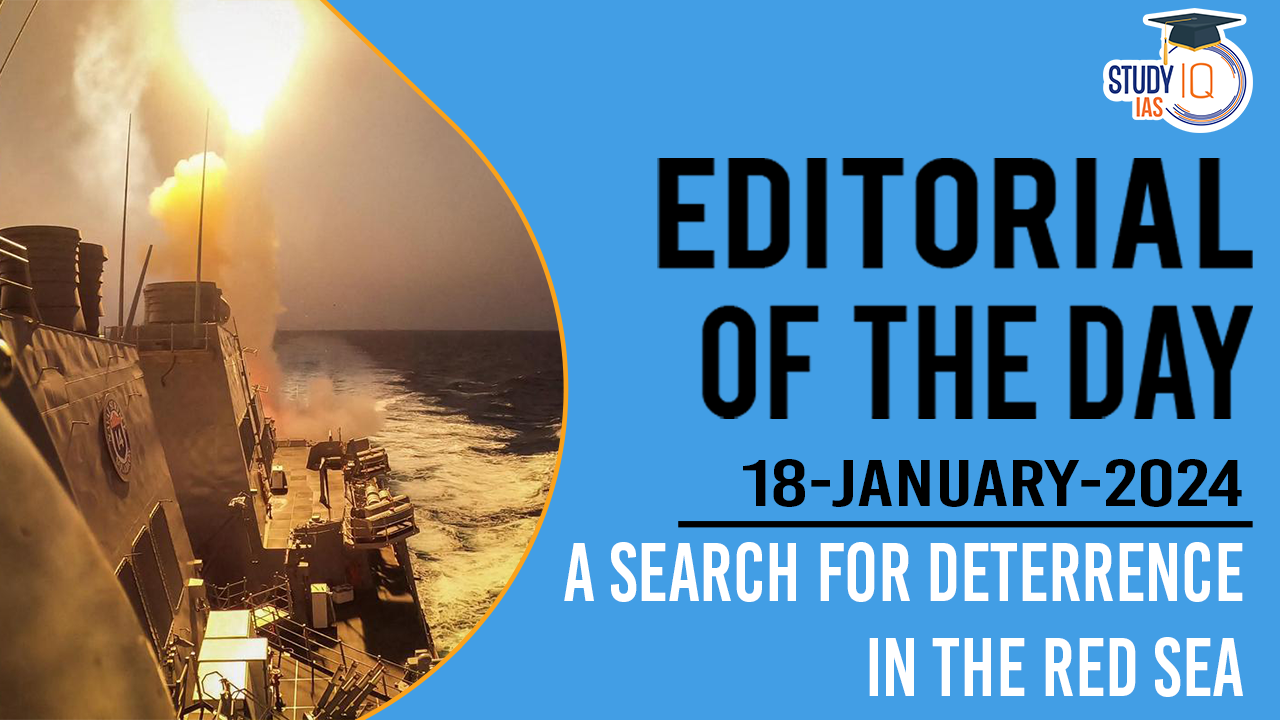Table of Contents
Context: The article raises concerns about the effectiveness of international cooperation in addressing maritime security threats.
Complexities And Concerns
- Advanced Warfare Tactics by Houthis: The Houthis are using sophisticated weaponry like drones and anti-ship ballistic missiles (ASBMs) for maritime attacks. This reflects their advanced military capabilities and training.
- Impact on Maritime Trade: The Houthis’ actions are disrupting crucial maritime trade routes in the Red Sea, raising concerns about trade security and the costs associated with rerouting and insurance.
- International Security Cooperation: The lack of effective cooperation and interoperability among international maritime forces is evident, despite previous joint defence exercises. This is a significant concern given the scale of the threat.
- State Support and Weaponry Proliferation: Iran and potentially China are state supporters of the Houthis. The supply of ASBMs raises issues about missile technology proliferation.
- Comparison with Anti-Piracy Efforts: The delayed response to piracy in the past allowed pirates to enhance their capabilities. There’s a fear that a similar pattern could occur with the Houthis, leading to more sophisticated and dangerous attacks.
We’re now on WhatsApp. Click to Join
Global Response
- S. Policy Shift: The U.S. plans to re-designate the Houthis as a global terrorist group, potentially limiting their financial activities.
- Operation Prosperity Guardian: Led by the U.S., this operation under the Combined Maritime Force (CMF) has seen limited participation from allies.
- Notably, key NATO allies like France, Italy, and Spain, as well as regional players like Saudi Arabia and the UAE, are either operating independently or not participating.
- India’s Role: As a full member of the CMF, India is conducting independent operations, possibly influenced by its relations with Iran.
Suggestive Measures
- Combining Military and Diplomatic Efforts: The article suggests a need for a calibrated approach that combines military actions with efforts to cut off weapon supplies to the Houthis.
- Avoiding Further Escalation: There’s an emphasis on preventing the situation in Yemen from turning into a battleground like Lebanon and avoiding state-on-state conflicts.
- Quick and Achievable Resolution: The article stresses the importance of establishing an accepted end state that can be quickly achieved to prevent further deterioration of the situation.
- Legitimacy Concerns: Actions need to be carefully assessed to avoid inadvertently lending legitimacy to the Houthis as a state actor.


 Places in News for UPSC 2025 for Prelims...
Places in News for UPSC 2025 for Prelims...
 New Phase of Operation Chakra to Combat ...
New Phase of Operation Chakra to Combat ...
 Soyuz Aircraft: History, Design and Sign...
Soyuz Aircraft: History, Design and Sign...





















